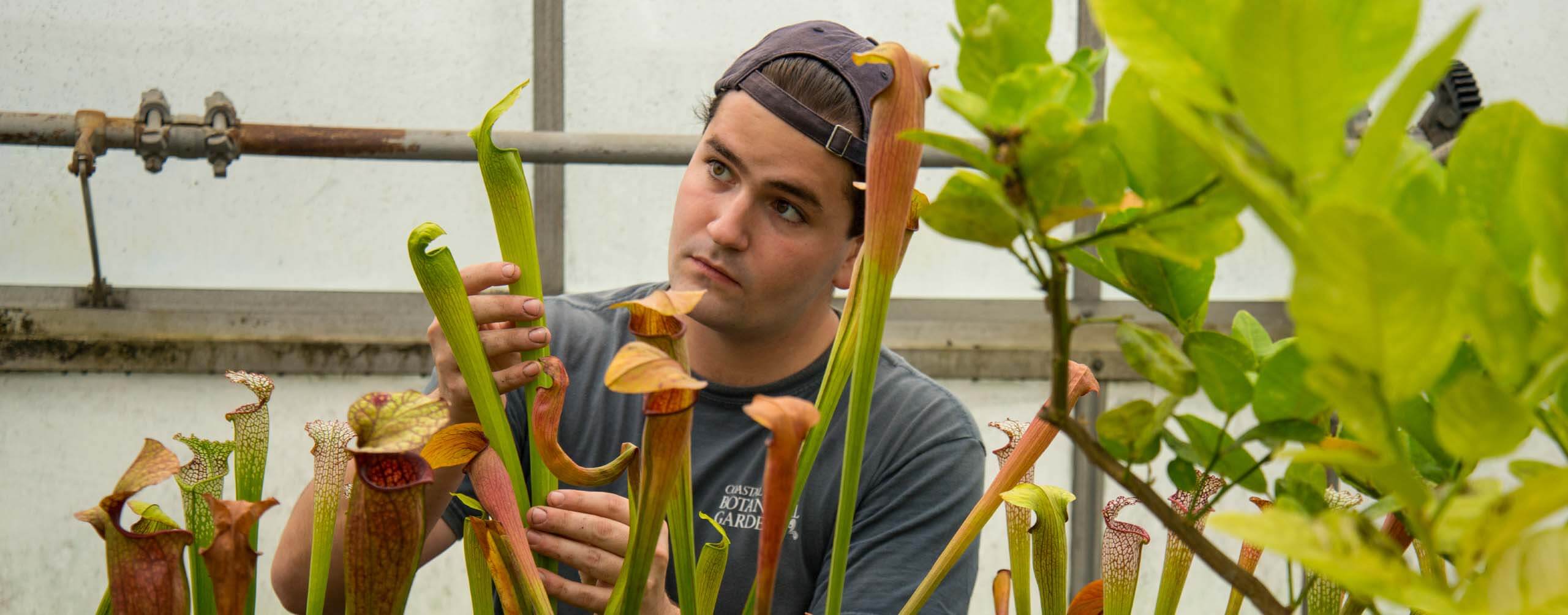
Botany
College of Earth, Life, and Health Sciences
Botany majors study all aspects of plant biology from microscopic levels to plant populations. Our students engage in undergraduate research, helping to solve critical problems in plant and fungal diseases, biodiversity, evolution, and plant ecology.
Botany at UMaine offers students a diverse set of courses, allowing them to tailor the program to their interests within all major areas of plant biology. A wide range of upper-level courses in plant pathology, physiology, taxonomy, and genetic studies form the heart of our botany program. Many students engage in research, learning how to increase our basic knowledge about plants and solve problems in many fields including ecology and horticulture. As a result, students graduate as well-rounded botanists.
We offer both B.S. and B.A. degree options. Students can choose the basic program in botany or add a concentration in ecology. Interested students can include independent research under the guidance of a faculty mentor in their program. The BS program has greater focus on organic chemistry, physics, and math, preparing students for careers in scientific research and development, environmental monitoring and plant genetics to name a few. The B.A. program in botany has greater flexibility to pair with a minor or second major, and solidly prepares students for careers such as educators, writers, lawyers, economists, artists, public policymakers, politicians and entrepreneurs.
The University of Maine is the ideal place to study botany. We have well-equipped teaching laboratories and easy access to nearby forests, fields, streams, ponds, and wetlands — the ultimate outdoor classroom! Many of our courses incorporate active learning techniques, which research shows improves student learning, performance, and persistence. Our introductory lab courses are inquiry-based, giving students the skills to ask their own scientific questions, and design and carry out experiments to find answers, to actually be scientists from their very first day.
Our botany faculty have active research programs providing students opportunities to participate in projects such as studying plant resilience to climate change, diseases, and improvements in agriculture. With UMaine’s three-fold mission in education, research, and service, undergraduate students find many opportunities to engage in projects of real importance to our world while preparing for careers, graduate studies, or professional school.
Peg Killian
Undergraduate Program Coordinator
Murray Hall, Room 100
207.581.2531 | peggy.killian@maine.edu
Botany
College of Earth, Health, and Life Sciences
Murray Hall, Room 100
207.581.2540

Schoodic Experience
The Schoodic Experience for incoming first-year students takes place at the Schoodic Institute in Acadia National Park, the week before classes start. Incoming students spend three days with other School of Biology and Ecology first-year students, advisors, and professors viewing living species in a variety of habitats, and enjoying recreation in a beautiful setting.
